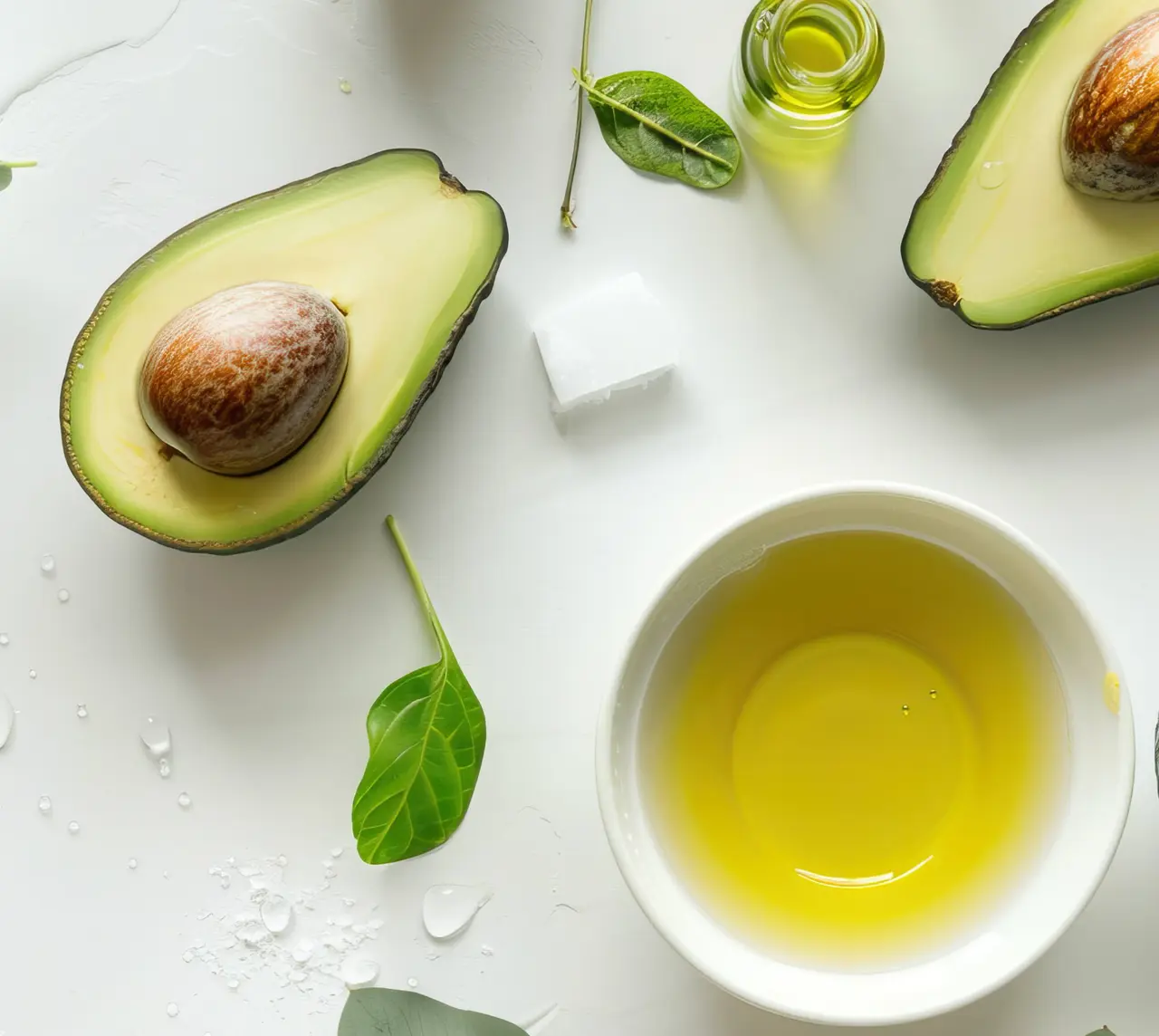In the quest for healthier cooking oils, avocado oil and olive oil often come up as top contenders. Both oils possess unique benefits and flavors, but how do they truly compare when it comes to health? This blog will explore the nutritional profiles, health benefits, and ideal uses of each oil to help you make an informed choice.
Nutritional Profiles of Avocado Oil and Olive Oil
At first glance, both avocado oil and olive oil may appear similar in their health benefits; however, they boast distinct nutritional profiles. Avocado oil is rich in monounsaturated fats, which can help lower bad cholesterol levels and support heart health. In contrast, extra virgin olive oil (EVOO) contains a higher concentration of antioxidants, particularly polyphenols, which can combat oxidative stress.
When it comes to calorie content, both oils are calorie-dense, but their nutritional composition sets them apart. A tablespoon of avocado oil typically consists of around 120 calories, much like its olive counterpart. However, the flavors they bring to a dish can be quite different, with avocado oil offering a mild, buttery taste, while EVOO has a stronger, peppery flavor profile.
It’s fascinating to note that avocado oil has a higher smoke point compared to olive oil. This characteristic makes it a better choice for high-heat cooking methods, such as frying or roasting. While EVOO is excellent for drizzling over salads or finishing dishes, its lower smoke point means it may not retain its beneficial properties when exposed to high temperatures.
Health Benefits of Avocado Oil
Avocado oil features numerous health benefits that make it a favorite among nutritionists. Its high levels of healthy monounsaturated fats support cardiovascular health by promoting good cholesterol levels. Additionally, these fats are crucial in assisting the body with nutrient absorption, enabling the body to utilize vitamins effectively.
Moreover, avocado oil is packed with vitamins E and K, both essential for maintaining healthy skin and preventing damage from harmful UV rays. The presence of antioxidants also helps reduce inflammation, making it a wise choice for those seeking to support their joints or overall health.
Another unique aspect of avocado oil is its ability to enhance the absorption of carotenoids from other foods. This means that when you consume it with salads or dishes rich in vegetables, you’re likely to absorb more vitamins and minerals. This nutrient synergy showcases how avocado oil can elevate the quality of a meal.
Health Benefits of Olive Oil (EVOO)
When discussing health benefits, extra virgin olive oil (EVOO) reigns supreme, especially in relation to heart health. Numerous studies have shown that the regular consumption of EVOO can significantly lower the risk of heart disease. Its unique combination of monounsaturated fats and phytonutrients work together to support vascular function and reduce inflammation.
Additionally, EVOO is renowned for its anti-inflammatory properties, thanks to the oleocanthal compound found within it. This compound acts similarly to ibuprofen, providing relief from pain and inflammation. Furthermore, its robust antioxidant content helps to reduce risks associated with chronic diseases, making it an invaluable addition to any diet.
Also noteworthy is that olive oil has been linked to cognitive health. Research suggests that the consumption of EVOO may aid in reducing the risk of Alzheimer’s disease and other forms of dementia. By supporting brain function and health through antioxidant activity, it becomes clear that EVOO is not just good for the heart, but also for the mind.
Ideal Cooking Methods for Each Oil
Understanding how to use each oil in cooking can enhance both flavor and health benefits. Avocado oil’s high smoke point, around 520°F, makes it ideal for frying and grilling. This means you can sear meats or sauté vegetables at high temperatures without losing its nutritional value.
On the other hand, extra virgin olive oil shines in its role as a finishing oil. It’s best used unheated or drizzled over cooked dishes due to its lower smoke point, which averages around 375°F. By doing this, you can retain its vital nutrients and characteristic flavor.
Furthermore, incorporating both oils into your cooking routine allows for diverse culinary experiences. You can use avocado oil for high-heat applications, while reserving EVOO for dressings, marinades, and drizzling over finished dishes. This combination not only diversifies flavors but also optimizes health benefits.
Which Oil Should You Choose?
Choosing between avocado oil and extra virgin olive oil depends on your personal preferences, health goals, and cooking techniques. If you’re looking for a heart-healthy fat that can withstand high temperatures, avocado oil could be your best bet. Its versatility makes it a suitable choice for many cooking methods.
Conversely, if your focus is on obtaining antioxidants and anti-inflammatory properties, EVOO should take precedence. Its flavor profile and health benefits can make any dish more exciting while contributing positively to overall health.
Ultimately, the best choice may be to include both oils in your pantry. By alternating between the two, you can enjoy a range of flavors and health benefits while adhering to a balanced diet. This thoughtful approach to healthy fats can lead to greater satisfaction in your culinary adventures.
Final Thoughts
Ultimately, the choice between avocado oil and olive oil may come down to personal preferences and specific dietary needs. While both oils offer health benefits, incorporating a variety of healthy fats into your diet may provide the most overall benefits. Whether you choose to drizzle with olive oil or sauté with avocado oil, both can fit into a balanced lifestyle.







